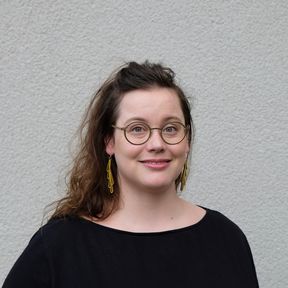Alumna Juulia Suvilehto is studying how coronavirus is affecting social behaviour and touching

Aalto University alumna Juulia Suvilehto, a postdoctoral researcher at Linköping University, is investigating the impact that coronavirus is having on behaviour involving social touching, and how touches are interpreted. The pan-Nordic study involves researchers from Finland, Sweden, Denmark, and Norway.
‘Coronavirus restrictions set by governments can affect how people make decisions about their social behaviours. On the other hand, social touching probably will not change in the closest relationships.’
Social touching is a natural and instinctual form of communication. Touch is thought to have phylogenetic and ontogenetic primacy and it is still relevant in the lives of modern adults.
‘Shaking hands, meanwhile, is a cultural norm which is not a particularly beloved form of communication. People prefer hugs to handshakes. Personally, I would not mind if handshakes were replaced by something else, such as elbow bumps.’ says Dr Suvilehto.
The fate of shaking hands and touching depends on how long the coronavirus epidemic and the restrictions last.
It is still possible to participate in the coronavirus survey here.
On hugging and social isolation
On a more general level, Suvilehto is also interested in why different people experience social touching differently.
‘I want to find out if the experience of being touched is linked with things like personality, physiological characteristics, or personal history. Some people are very touchy-feely, while others do not find being touched to be pleasant at all.’
In another new project, Suvilehto is investigating how loneliness among young adults might be better understood. Studies have shown that people under the age of 25 are at their loneliest, or are approximately as lonely as those over 70.
‘When a student starts at university, this often involves relocating and moving away from home for the first time. They also may lose contact with their old classmates. Freshmen often experience a reorganisation in their social networks. This leads elevated levels of loneliness in some while others find the transition easier.’
Suvilehto wants to learn what kinds of factors affect a young adults’ risk of ending up lonely, and if this can be influenced from outside. This project uses the skills and knowledge of the group of researchers headed by Aalto University Professor Jari Saramäki who are studying how data collected by mobile telephone could be used to describe and understand social behaviour in the real world.
Stamina and role models
Suvilehto graduated from the Bioinformation Technology Bachelor's and Master's programme at Aalto University in 2014. She wrote her doctoral dissertation on social touching at the Department of Neuroscience and Biomedical Engineering. During her studies Suvilehto held several positions of trust in Inkubio, the guild for students of bioinformation technology. The experience taught her how to take responsibility for things.
On International Women's Day Suvilehto wants to thank inspiring female role models, such as Academician Riitta Hari and University of Zürich Professor Anna-Liisa Laine.
‘We are all just researchers, not female, or male researchers. However, the pandemic has made it clear that women in academia have, on average, more caregiving responsibilities and should have more institutional support. Women also put in more effort to being good departmental citizens while men focus more on their individual scholarship. Currently the academic incentive structure is designed to only reward individual achievements. I think it would be important to notice all the work women do in supporting the well-being and smooth operation of their work environments.’
Further information:
Juulia Suvilehto
Postdoctoral researcher
Linköping University
juulia.suvilehto@liu.se
Read more news

Learning to slow down: cold-water swimming benefits explored in new study
Swimming in cold water offers a temporal slowdown, promoting stress management and mental clarity that lingers long after the experience, says research from Finland.
OpenLearning additional maintenace downtime on Wednesday, 11 March from 9:00 AM to 12
The system will be unavailable during the update.
The proxy server for remote access to e-resources is changing
If you have problems using e-resources, try accessing the e-resource using VPN connection.






